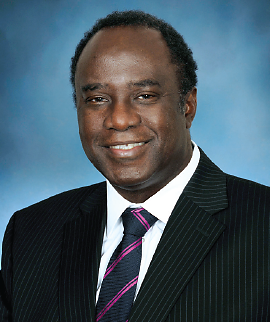Despite decades of zealous scientific effort, an effective medication to treat cocaine addiction remains elusive. Hope for such a treatment is growing, however, based on results of a study published online October 16 in JAMA Psychiatry.
The medication topiramate—already approved by the Food and Drug Administration (FDA) to treat seizures and prevent migraines and also used off label to treat alcohol dependence—is now looking promising as a treatment for cocaine dependence as well.
The study was headed by Bankole Johnson, M.D., D.Sc., chair of psychiatry at the University of Maryland.
Animal research has shown that an intact GABA neurotransmitter system in the nucleus accumbens, corpus striatum, and several other brain structures is critical for cocaine to exert its effects. Animal research has also indicated that medications that enhance GABA function can reduce cocaine’s effects. Thus Johnson and his colleagues hypothesized that topiramate, a medication known to enhance GABA function, might be effective in treating cocaine dependence. They then launched a clinical trial to test this hypothesis.
A total of 142 cocaine-dependent adults were recruited to take part in their study. Half were randomized to receive topiramate, and half were randomized to receive a placebo over a 12-week period.
The primary outcome variable was the weekly difference from baseline in the proportion of cocaine nonuse days during weeks 6 to 12, the period when subjects’ topiramate doses should have been optimal. Cocaine use was monitored by self-report and urine tests three times a week.
The second outcome variable was cocaine craving as measured by two craving scales that had been well validated in previous pharmacotherapy trials for cocaine dependence—the Cocaine Selective Severity Assessment Scale and the Brief Substance Craving Scale.
Finally, global functioning was evaluated by a clinician or nurse practitioner using the Clinical Global Impression-Observer Scale and by the subjects themselves using the Clinical Global Impression–Self Scale.
Topiramate was significantly more efficacious than placebo in increasing cocaine-nonuse days and urinary cocaine-free weeks, in reducing the frequency and intensity of cocaine craving, and in improving both observer-rated and self-rated global functioning.
In short, “We have some great news regarding a treatment for cocaine dependence,” Johnson told Psychiatric News. As he and his colleagues asserted in their report, “Taken together, it is reasonable to propose that topiramate treatment was associated with a clinically meaningful improvement in the severity of cocaine dependence.”
They did acknowledge that they could not compare topiramate’s impact with that of any other medication, since no medication has been approved by the FDA to treat cocaine dependence.
“Finding a safe and effective medication (or vaccine) for the treatment of cocaine use disorder has been the holy grail of our field for decades,” Petros Levounis, M.D., chair of psychiatry at Rutgers New Jersey Medical School and an addiction psychiatrist, said during an interview. “Every few years, an exciting possibility appears on the pharmacotherapy scene, only to fizzle out a little later. For a long time, topiramate has been thought of as one of the more promising medications for the treatment of cocaine addiction, and the present study supports this notion. We hope that our current optimism for the success of topiramate is not short-lived as was the case for some other drugs. Had the study been longer than 12 weeks, our confidence in the reported encouraging results would be considerably higher.”
Indeed, the next step, Johnson and his team explained, will be to undertake a trial of six months or longer to try to replicate and extend their current findings.
The study was funded by the National Institutes of Health and the Agency for Healthcare Research and Quality. ■

